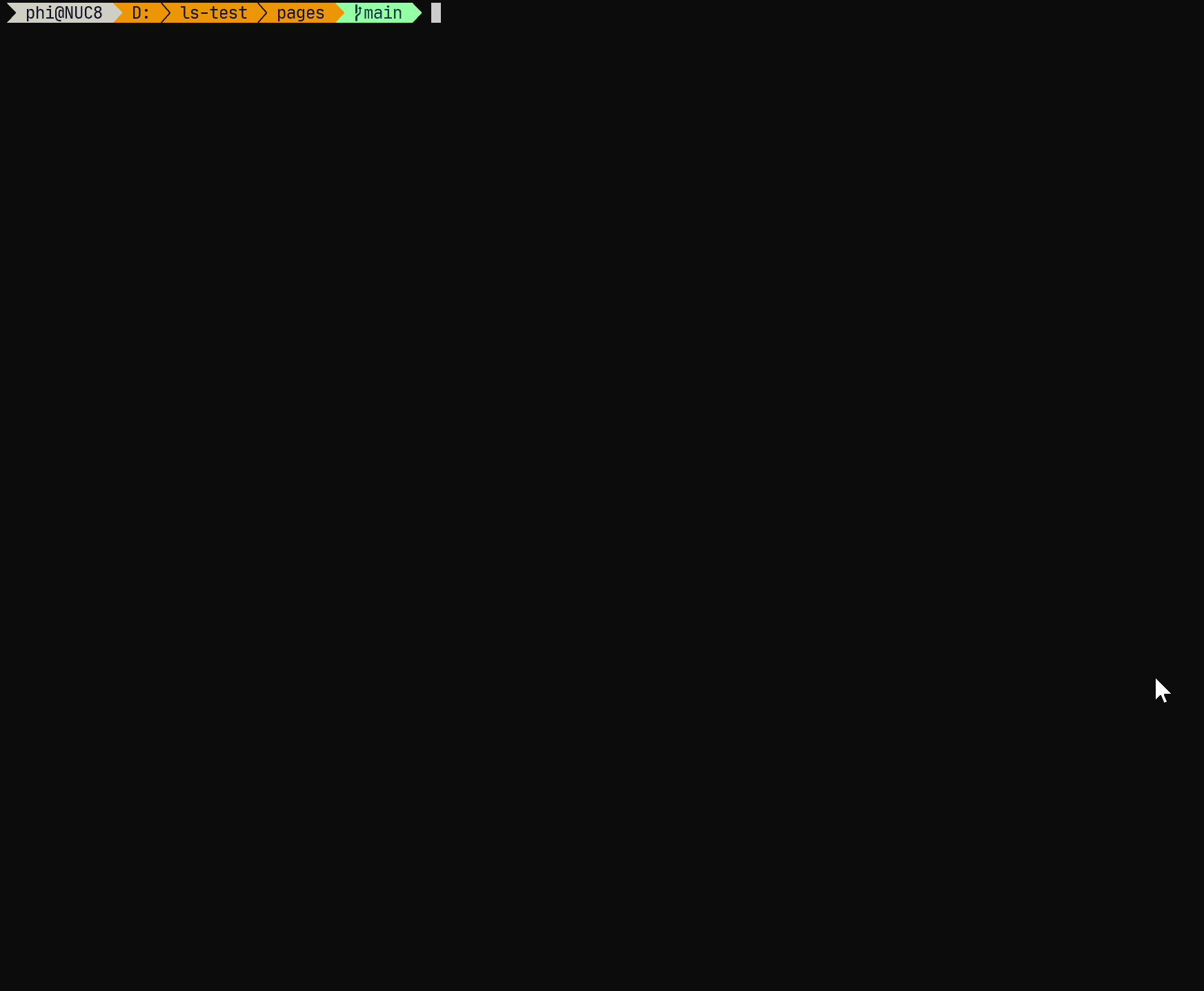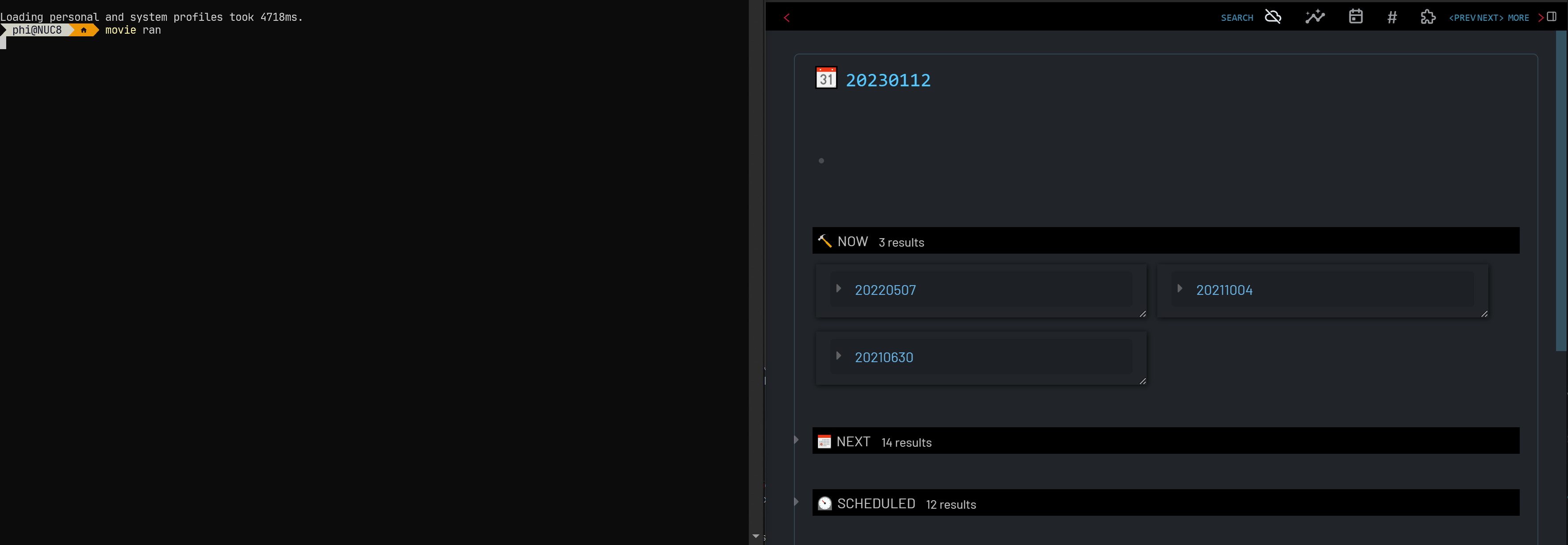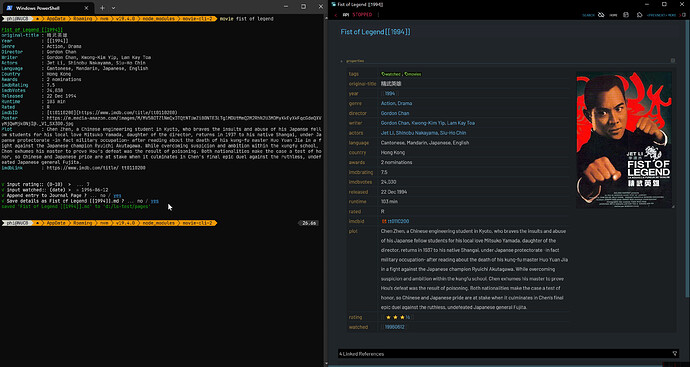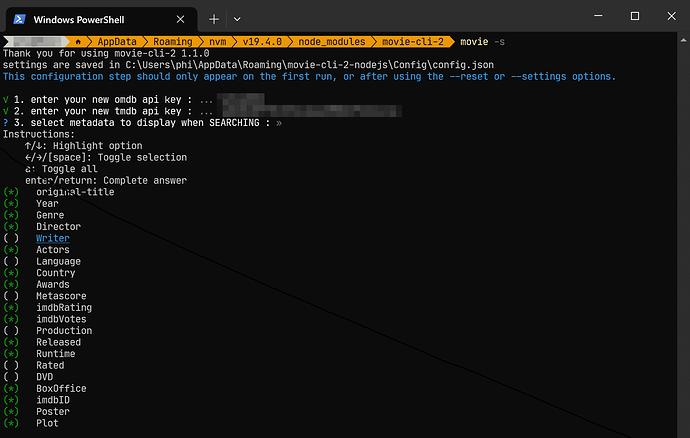movie-cli-2
a CLI tool to fetch movies and tv series details from omdbApi.com and tmdb, or comparing two movies.
It can optionally save the movie metadata to the clipboard or as a markdown file in a custom folder. Metadata are formatted as property:: value for Logseq
current version : 1.1.0 (2022-01-17)
install
npm i -g github:cannibalox/movie-cli-2
USAGE
open a terminal and type movie followed by search terms. the script will display relevant movie details and copy them to the clipboard, formatted as logseq properties, it can also directly save them as a markdown file in your fodler of choice (file will be named star wars [[1977]].md) .
Usage: movie [title] or [movie1]::[movie2]
Options:
-v, --version output the current version
-k, --key set and save your apîkeys
-r, --reset resets options and clear keys
-s, --settings define settings
-h, --help display help for command
terminal showing info (left) | movie info saved as a md file inside Logseq using custom.css (right)
demo

requirements :
- NodeJS > 17.5
- an api key from omdbapi.com to fetch movie details
- a TMDB api key is required to fetch “original title” property
configuration
- on first start, the program should enter configuration mode and will let you choose options (eg: define which metadata to fetch, auto-save to clipboard, etc…)
- please get your own api keys for omdbapi (OMDb API - The Open Movie Database) and TMDB (https://www.themoviedb.org/settings/api) - tmdb is needed for original-titles (for non english movies)
- the configuration is automatically saved, use
movie -vto see the location of the config file - use
movie --resetormovie --settingsto modify the configuration after the first run
setup is done via some questions
for logseq users:
- the movie metadata can be saved as a markdown file as
property:: value. it can add atitle::and fill defaulttags:: - don’t forget to set your date format in the config file to match your logseq date format (like yyyymmdd | yyyy-mm-dd | dddd, MMM do, yyyy | etc…) to get the correct
watched:: [[%mydate%]]link
(refer to logseq docs and GitHub - felixge/node-dateformat: A node.js package for Steven Levithan's excellent dateFormat() function. to see available formats) - the script can optionally asks for a custom rating and watched date, they will be saved as properties
rating::(converted to star) andwatched:: [[%date%]](a few custom arguments are possible) - filepaths should point to your logseq journals and pages folder (eg: ‘c:\logseq-graph\journals’, ‘d:/logseq/pages’ or ‘/Users/path/to/logseq/pages/or/journal/’)
the folders must exist prior to the execution. the trailing\or/is not required. - the script can optionally set a log line in the daily journal at the %watched date% defined for the movie
- I recommand to use the logseq config.edn option :
:property/separated-by-commas #{:tags :genre : director :writer :actors}
to trigger auto linking for some properties.

new features and improvements
the script is forked from Mayankchd’s movie-cli, tailored for my personal movie tracking workflow in Logseq.
notable differences and new features :
- added a list of matching titles to pick from, to disambiguate titles like
Alone (2008)vsAlone (2020) - added save to clipboard and save to file options
- added
original-title::property using TMDB api for non-English titles - added custom inputs (ratings, watched date)
- refactor code, updated to ECMAScript modules, update dependencies and removed isomorphic-fetch.
limitations
this tool was made for my personal workflow and is provided as-is, for now, it only saves in markdown format, not org. Only tested in Windows, but it should work in *nix and mac too. Remeber to backup your logseq graph and make sure to test outputs in a temp folder before directing it to your main graph.

